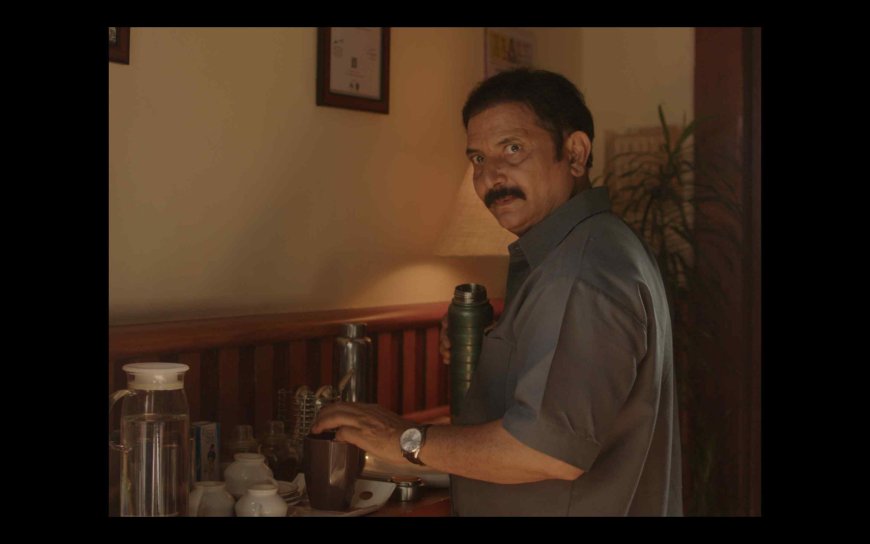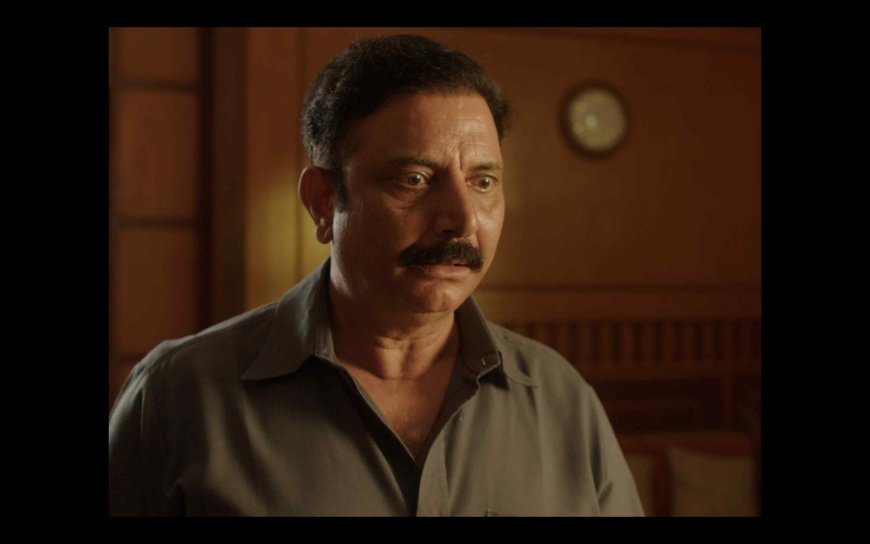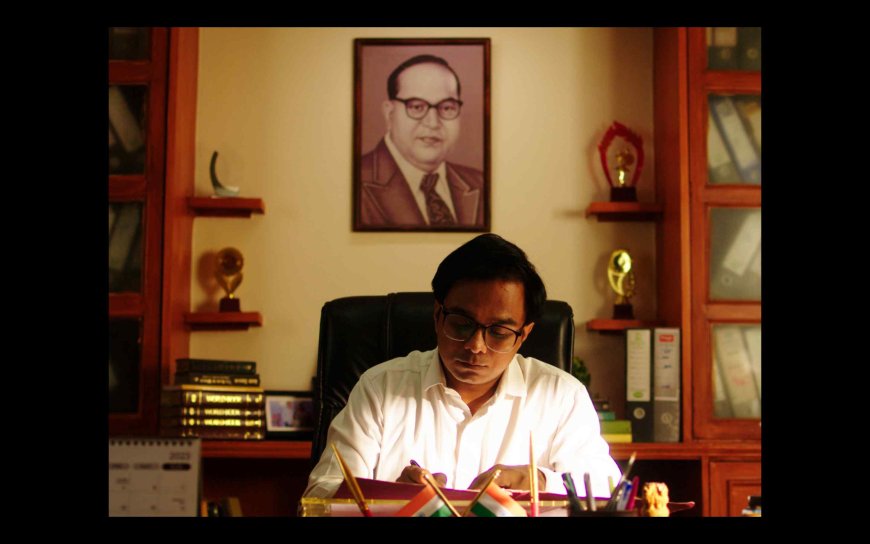MUDIT SINGHAL’S SHORT FILM YES SIR A UNIQUE PERSPECTIVE ON CASTEIST PERSPECTIVE IN REVERSE
Dr. Shoma A. Chatterji provides a comprehensive review of the short film, "Yes Sir" by Mudit Singhal
Yes Sir is a 20-minute short film in Hindi directed by Mudit Singhal which was recently screened as part of the short film festival organized by the Federation of Film Societies in Nandan, Kolkata. The film within its brief span, with little dialogue but more action, unspools the reactions among members of upper castes when the Dalit and low-caste people, by virtue of the caste reservation policies and also, the academic superiority among some low-caste people hold higher posts under who the upper castes are forced to work.
Yes Sir had its World Premiere at the 18th Tasveer South Asian Film Festival, an Oscar-qualifying film festival, in October 2023, and has so far been selected in 27 International and National Film Festivals and has won 5 awards in a few of them.
Who is Mudit Singhal? He is a screenwriter, a filmmaker and a theatre director based in Mumbai. As a theatre director, he has produced and directed five theatre productions till date and as a filmmaker, he has made three short films of which the earlier two are Vortex (2015) and Closet (2018). Singhal runs a digital content development and marketing communications agency in Mumbai, India. He has written two feature-length film scripts so far, the stories of which had been shortlisted in the first round of Cinestaan Scriptwriting contest in Mumbai, India, in 2018 and 2019.
Yes Sir narrates the story of a high-caste Brahmin Ramnarain Tiwari (Mukesh Bhatt) who works as an all-purpose peon in a government office where his big boss, Narottam Saroj/Valmiki (Sonu Anand) belongs to the low-caste strata of society. Tiwari is always frustrated more by the fact that, being a high-caste Brahmin, he is forced to do very low-level jobs like cleaning the toilet when the tap begins to overflow and fills the floor of the toilet, forced to make tea for his boss, than by the fact that he has not got an increment in his salary for several years. The boss, a young, bespectacled gazette officer, is forever at work, sifting documents, going through files and often asking Tiwari for his regular cup of tea. He also shouts orders to Tiwari if he is even a bit late and all this frustrates Tiwari mainly for jobs he considered quite demeaning for the caste he is born into.
"Dalithood is a kind of life condition which characterises the exploitation, suppression and marginalization of the lower castes by the social, economic, cultural and political domination of the upper caste Brahminical order” is the way Dr. Babasaheb Ambedkar defined the word “Dalit” long before we included it in our common lexicon, according to Tapan Basu. (Translating Caste. New Delhi: Katha, 2002.)
However, what reaction happens among upper-caste people as a result of this ‘reverse casteism’ few directors have tried to depict on screen. This is what sets Yes Sir apart as a film. The film does not stand on judgment on this reservation of seats determined on the basis of caste and class but points out how it can impact on the personal and professional lives victimized not by birth but by this ‘reservation’ though the position of the boss has been attained purely on the basis of merit.
The film has a stunning opening showing Tiwari gloating over his high position by virtue of his Brahminism. He watches a low-caste fellow standing in the distance waiting for prasad from this Brahmin who has just completed his pooja and is distributing the prasad among ordinary people. He approaches this poor man and throws the prasad into his outstretched palm from above and this poor man lies flat on the floor to show his respects. Tiwari takes a few steps back to avoid being touched by an untouchable. But when he looks at the young beggar’s face, it transforms into the bespectacled face of his boss. And we are thrown into the present. We see Tiwari being told to take care of the leaking bathroom drain by his boss and he hates the very thought of doing this lowly work but is forced to.
However, there is a scene showing Tiwari conversing with a casual worker who belongs to a higher caste but has begun to trade in pigs. This shocks Tiwari because upper caste people are not supposed to trade in pigs or piglets. But the friend informs him that earning money through business is always preferable to a low income or no income.
“Our film is about bringing social change, and a change in the mindset of people about caste discrimination which has been an unfortunate social reality and human rights issue in India for centuries,” says director Singhal.
In his director’s statement, Singhal states: Dr. B.R. Ambedkar, known as the Father of the Indian Constitution, in his undelivered speech 'Annihilation of Caste' in 1936, had stated:"Caste is not a physical object like a wall of bricks or a line of barbed wire which prevents the Hindus from commingling and which has, therefore, to be pulled down. Caste is a notion; it is a state of mind. The destruction of caste does not therefore mean the destruction of a physical barrier. It means a notional change."
Singhal adds “It is this notion of caste that unfortunately prevails in India (and the subcontinent) even today, and we are still very much caged inside it. 'Yes Sir!' is a story of how a notional change can still happen, albeit only slightly. The attempt is to show this in a lighter vein, as it is a story where the typical roles of an officer and a peon are reversed - a Brahmin serving as a peon to a Dalit, a senior officer at a government undertaking - and how this reversed hierarchy creates an awkward, and funny situation for the peon because of a mundane problem that needs to be fixed, almost like how the issue of caste needs to be fixed.”
The film has little dialogue and actor Mukesh Bhatt has invested his role of Tiwari with just the right touch of reality and commitment. The same goes for the young Sonu Anand who portrays his boss and does a good job of being swamped in papers, files, signatures. Though he throws orders at Tiwari, the end shows us that he has also got Tiwari his increase in salary by passing his application to higher authorities which corrects the bias of Tiwari against his low caste boss and makes him admire and accept his boss.
Hardly a single film exploring the Dalit issue or identity or class has brought forth the truth in the brutal statement Ambedkar made way back in 1945 by saying, “To the untouchable, Hinduism is a veritable chamber of horrors.” (Arundhati Roy, India’s Shame, Prospect Magazine, December 2014.) The word “untouchable” sounds contradictory if not funny in a country that prides in calling itself the world’s largest democracy where the rulers come to power through the public mandate via general elections. In India, according to the 2011 Census, the population of Dalits is 20.14 crores which forms 16.6% of the total population of the country. Within this scenario, Yes Sir drives a much necessary point home.
*****
What's Your Reaction?




































































